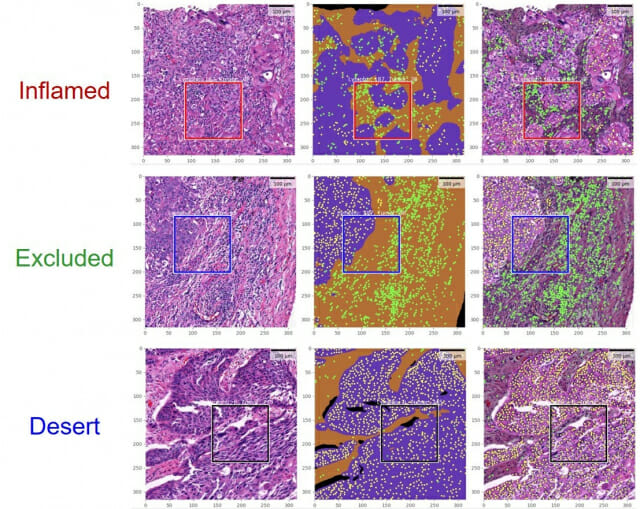
The medical artificial intelligence (AI) company Lunet announced on the 11th that the accuracy of its cancer treatment aid AI solution was 92.4%, higher than the doctor group average of 80.5%.
Lunit plans to present a research paper on the accuracy and practical application of AI biomarkers used in the solution’Lunit Scope IO’ at the American Canadian Pathology Association (USCAP) held on the 13th to 18th.
Lunit Scope IO classifies the distribution of cancerous tumor-infiltrating lymphocytes (TIL) into three immunological traits through analysis of patient tissue slides. Depending on each trait, the prognosis of immuno-anticancer treatment can be confirmed, so it can be used to aid treatment. This was announced by AACR and ASCO, one of the world’s two largest cancer societies, and has been recognized for its meaning.
The study presented by the USCAP aims to compare and verify with pathologists how much the Lunit Scope IO can classify patients’ 3-IP with high accuracy. The research was conducted using data with the pathology research team of Samsung Medical Center, Seoul National University Bundang Hospital, and Ajou University Hospital, and the analysis results of the Lunet artificial intelligence platform and pathologists were directly compared.
As a result of classifying the tissue slides of patients with non-small cell lung cancer as 3-IP, the pathology specialist group showed an average of 80.5% agreement, while the Lunet AI platform succeeded in 3-IP classification with 92.4% accuracy, resulting in excellent performance. Proved.
This result means the possibility of predicting the response of patients to chemotherapy and providing more effective customized treatments through accurate classification using AI.
Seok-Hwi Kim, a professor of pathology at Ajou University Hospital, who oversees this study, “3-IP classification through tissue analysis is a very important factor in predicting the response to anticancer drugs. This is directly related to the treatment process and survival rate of the patient, so accurate classification is important. “Do” he said.
Related Articles

Lunit to supply Philips with AI diagnosis solution for lung disease

Lunit, Infinite Healthcare and overseas expansion cooperation

Lunet won the Korea Data Industry Promotion Agency Award at the 4th Industrial Revolution Awards

Lunet applies AI to military medicine…helps read chest diseases
He added, “The accuracy of the Lunet scope IO verified in this study suggests that artificial intelligence can be used greatly in the treatment of patients in the future.”
Seo Beom-Seok, CEO of Lunet said, “As the use of AI in the field of pathology and chemotherapy has emerged worldwide, related investments are increasing explosively.” “Lunit is a global leader in this field, and Lunet AI is a new biomarker for chemotherapy. We will continue to develop and research the performance so that it can be used as a product.”
